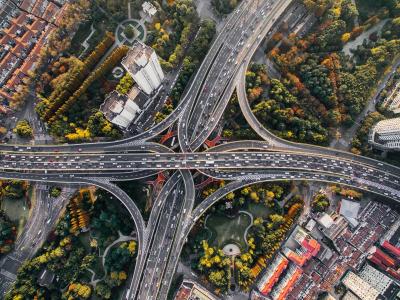Amazon has fired two delivery businesses in the Portland, Oregon area (NASDAQ: AMZN). Last Mile Delivery and Triton Transportation stopped transporting packages for Amazon last week, and an attorney for both companies told Modern Shipper that legal action against the e-commerce giant is being considered for breach of good faith and fair dealing, as well as interference with economic relations.
An Amazon spokeswoman told Modern Shipper that the last-mile delivery businesses ended the agreement after Amazon declined to meet a payment demand of $36 million.
“Last week, two delivery service partners (DSPs) threatened to stop servicing the Amazon account and put their drivers’ livelihoods in jeopardy unless we paid them $36 million within 48 hours, along with a string of additional demands,” the representative stated. “We resisted their demands, and they followed through on their threat by cancelling our contract, leaving their staff perplexed and in search of solutions.”
According to Thomas Rask of the Portland-based law firm Kell, Alterman & Runstein LLP, who is defending the DSPs, the two companies employed a total of 157 drivers. Rask forwarded a copy of the complaint to Modern Shipper, which detailed the difficulties and issues that Last Mile and Triton had with Amazon. He verified that the companies had requested money from Amazon, although he did not specify how much.
Like Modern Shipper on Facebook for more stories like this.
He stated, “We did want recompense for ourselves and our drivers.” “The aim was to make up for what they had gone through, but they were uninterested.”
Tracy Bloemer, co-owner of Last Mile Delivery, allegedly issued a letter to her drivers on June 23 stating that the company would no longer serve the Amazon account and implying that the dispute was over money, according to The Oregonian newspaper.
“Amazon has been nickel and diming us so badly that unless we change, we will no longer be able to provide the support and incentives that we have been able to provide thus far. This leaves you all alone to complete over 200 stops while earning less money “She is said to have written something.
According to the Oregonian, the two companies delivered about 22,000 parcels per day for Amazon. The firm was “doing everything we can to support the affected employees, including connecting them with other Delivery Service Partners in the area who are hiring,” according to an Amazon spokesman, and service in the area was not expected to be interrupted.
Dispute Over Payment
While Amazon has been known to terminate DSP contracts due to underperformance or safety concerns, it is rare for a DSP to do so. Amazon partners with almost 2,000 DSPs in the United States, employing 115,000 drivers. More than $450 million has been invested in vehicle safety innovations, driver safety training, and higher compensation. According to the report, the typical DSP driver earns $17.50 per hour across the network.
According to the complaint, in April “Amazon decreased the rate card reimbursement rate from $17.25 to $16.00 unilaterally. As a result, Last Mile and Triton had to either (1) lower their drivers’ salary in the midst of a pandemic or (2) continue to pay their drivers the expected $18.00 wage without reimbursement, resulting in even higher losses.”
According to the paper, Last Mile and Triton pay drivers $18 per hour.
According to the complaint, Amazon has near-total control over the DSPs’ businesses, including the ability to fire drivers without their consent and schedule business deliveries on weekends even when the businesses are closed, only to penalize drivers for failing to deliver the goods.
The dossier also raises concerns about Amazon’s influence over the DSPs’ drivers, routes, attire, and grooming, as well as arbitrary metrics and bonuses based on a matrix on which “Amazon continuously refuses to share any information whatsoever,” according to the document.
There are more than a dozen detailed concerns in total, according to Rask, which add up to danger and make operating profitable businesses more difficult.
Expectations raise the stakes.
“Drivers who are always in a rush on the road endanger the general public. Drivers are being injured as a result of Amazon’s unrelenting, demanding, and unconscionable workload, putting the public at risk and exposing Last Mile and Triton to severe legal liabilities and increased expenditures “According to the document.
In 2019, Amazon signed DSP agreements with both Last Mile and Triton, but “Amazon’s conduct over the past two years has grown unacceptable, unconscionable, unsafe, and most importantly, unlawful.” “Amazon’s immoral and unlawful conduct has pervaded practically every element of Previous Mile’s and Triton’s business over the last two years,” the letter continues.
The two DSPs, according to Rask, asked Amazon to make a number of changes, including limiting routes to 8.5 hours (drivers are paid for a maximum of 10 hours on a route, even if it takes longer to complete), a maximum of 150 stops per route, and a maximum of 250 packages per van, with exceptions made for bulk deliveries. Changes to the rate card were also requested, allowing DSPs to maintain control over their staff, including hiring and firing choices.
The companies also requested that Amazon make route promises rather than the present system, which leaves drivers without work on days when there aren’t enough shipments. The DSPs are required by Oregon law to schedule the drivers at least six days in advance, but neither company knows if there will be work for that driver until the day or two before. On days when no packages are delivered, the DSPs are required by state law to pay the drivers, albeit Amazon is not obligated to refund the DSP for the day’s wage.
Changes to the DSP
Amazon has already cut relations with DSPs, and has been chastised for it. While Amazon rarely provides specifics, it is possible that the cause is related to safety or customer service. The contract between TL Transportation and Amazon was terminated in August 2020, according to FreightWaves. At the time, the company was facing a lawsuit for a physical confrontation one of its drivers had with a New Jersey homeowner.
Clarissa Hawes of FreightWaves noted at the time that Amazon has reduced over 3,000 drivers from their workforce by 2020. An Amazon spokesman alluded to safety as a primary concern for the e-tailer during a similar purge of logistics contractors in February.
“We contracted with a number of small logistics companies prior to creating the Delivery Service Partner program to encourage entrepreneurs to expand their businesses with Amazon,” an Amazon representative stated. “We’re in the process of removing some of these companies from the program because they didn’t meet our standards for safety, performance, or working conditions.”
The camera captures everything.
Amazon announced earlier this year that it wanted to employ in-vehicle cameras to track which DSP drivers were wearing face masks. Following a letter from five U.S. senators, including Elizabeth Warren, D-Massachusetts, and Bernie Sanders, I-Vt., to Amazon CEO Jeff Bezos, questioning the e-commerce giant on its plans regarding privacy concerns over the installation of the Netradyne Driveri camera system, Amazon dropped the effort.
“Although community and automotive safety are paramount, workers’ and the general public’s safety, privacy, and well-being must not be compromised. We are concerned that adding more surveillance tools and monitoring could raise road risks, put undue pressure on drivers, and infringe on people’s private rights in the United States “According to the letter,
The in-vehicle cameras will be used by Amazon to monitor safe driving behaviors, such as distracted driving. According to The Information, the corporation listed mask wearing as one of the behaviors it would monitor in a recent training video.
Amazon claims that over 2 million miles of testing of the Netradyne camera system revealed a 48 percent reduction in accidents, a 20% reduction in stop sign violations, a 60% reduction in driving without a seatbelt, and a 45 percent reduction in distracted driving.
The Netradyne Driveri platform monitors and records driver behavior in real time using in-cab cameras, artificial intelligence, and machine learning in an Edge computing environment. Its cameras can detect speed limit signs, stoplights, stop signs, pedestrians, and other objects, as well as provide context for occurrences.
Brian Straight’s Modern Shipper articles can be found here.
You might also be interested in:
Social Auto Transport has raised $1.5 million in seed capital to develop its auto-moving business in the gig economy.
Bringg’s partnership with Uber gives up new possibilities for e-commerce.
This summer, Walmart will launch a drone delivery pilot program.
Pixabay was used to create this image.
One of our external writers wrote the previous article.
It has not been modified and does not represent Benzinga’s perspective./n



